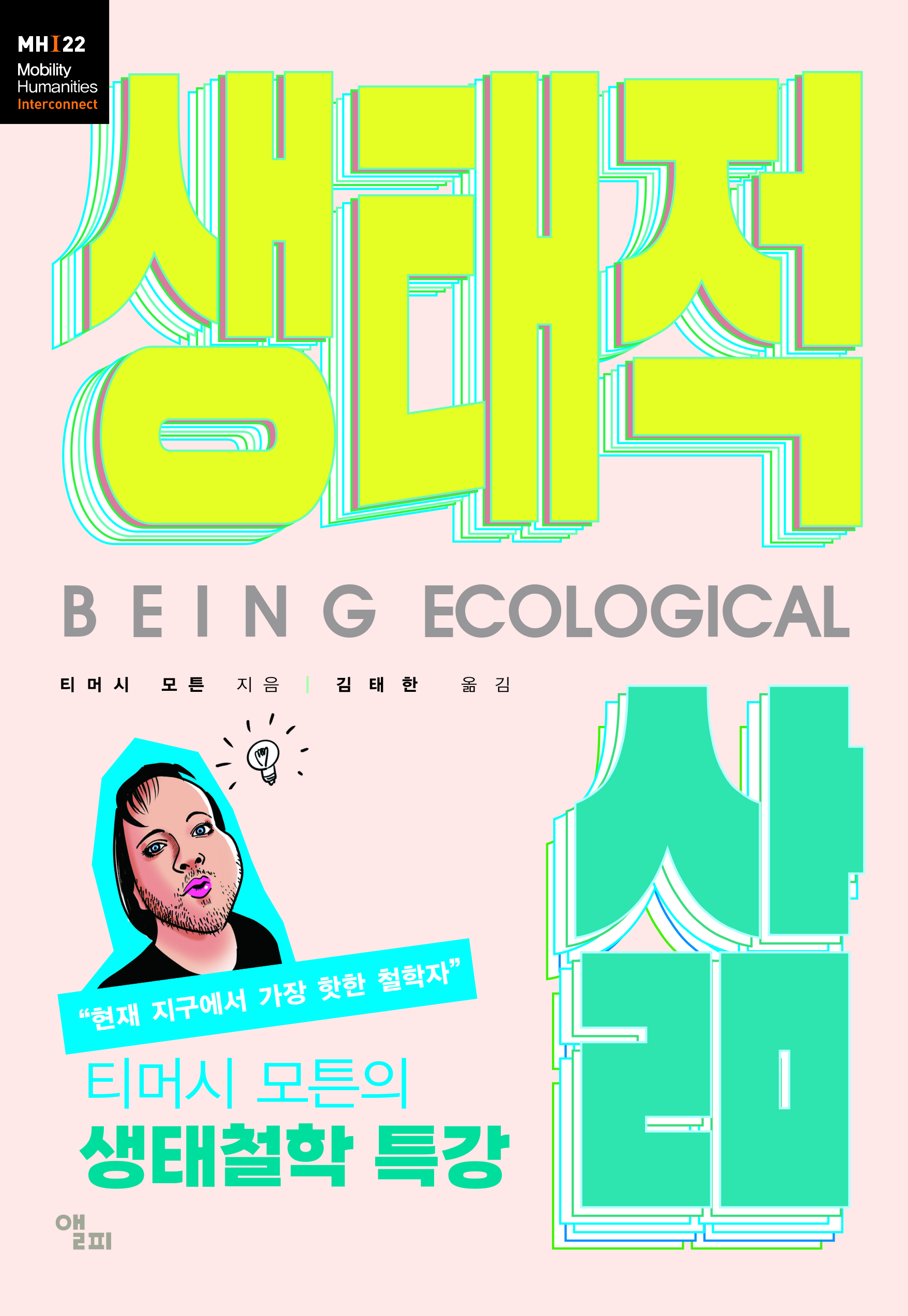Ecological thinking in the age of hyperobject/extinction event
The “Hottest” Philosopher in the world today
This book is an ecological version of the new materialism, especially Harman’s Object-Oriented Onthology, which has emerged as a new trend among intellectuals like Bruno Latour and Graham Harman. Timorthy Morton, a chair professor of English Literature at Rice University in the U.S., coined the word “hyperobject,” a topic of current philosophy, and is renowned for his ecological philosopy that encompasses all human disciplines after the Anthropocene in the face of the militarized forces of oil culture. Morton asks: How do we distinguish between humans and nature(hyperobject)? Where does one begin to be non-human, non-life, and an object, life and non-life, become increasingly ambiguous, Morton asks how to establish the relationship between humans and non-humans and how to coexist. According to Morton, global warming, humanity’s biggest challenge now, is a hyperobject that is massive, dispersed in time and space…happening over decades and centuries (in fact, thousands of years) and spanning the entire planet.
An Ecological Version of New Materialism
Morton is a famous philosopher who combines aspects such as food, rock, music, biology and quantum physics, all in one subject. He represents the current “trend” in the Western intellectual world, where ecology encompasses all the branches of human science. Morton rejects the concept of “nature”, According to him, the idea of nature is anthropocentric. “Ecology without nature” is his goal; he belives we already live an ecological life. “Hyperobjects” are objects, substances, and beings beyond our grasp. Without going beyond the dichotomy of human and nature, humans and non-human beings, we cannot think of ecology as a web of interconnectedness between human and non-human. Object-oriented intology is a new philosophy and ecology that goes beyond Western-centered, subject-centered, and anthropocentric thinking.
From Anthropocentric Philosophy to a New Pleasure-Centred Ecopolitics
In the 19th century, Nietzsche declared God dead. This is often taken to mean that humans face the meaninglessness of existence, but instead it is the opposite. God’s death is not an empty and desolate wasteland. It is a scary jungle full of creatures. “Ecological consciousness,” Morton says, “shakes the one measure by which all things are governed: anthropocentric measures and ideas.” Ecological consciousness menas thinkings and actiong ethically and politically on numerous scales, not on one scale. We vaule a well-functioning biosphere optimized for human existence that does not cause excessive damage to other life forms. This smothness and efficiency are the way we now consist of the world. However, unlike the efficiency pattern, which does not allow for malfunction or accident, things are much more like malfunctions and accidents. The ultimate horizon for this efficiency is the oil culture. At this point, Morton explanins that ecopolitics expands, modifies, and develops new forms of pleasure. Instead of suppressing the meager pleasure we are already experiencing, let’s imagine pleasure beyond the oil economy. Let’s step outside the comfort zone of anthroppocentrism. Ecological society is a symbiotic beings interwined with other symbiotic beings, we do not need to live ecologically. We already do.


